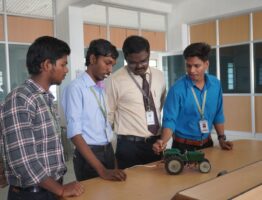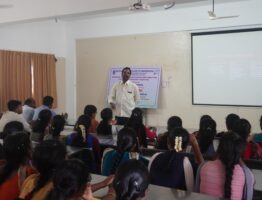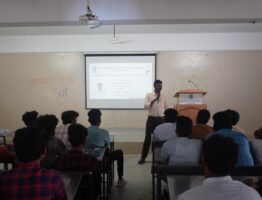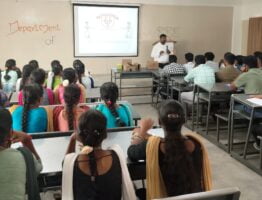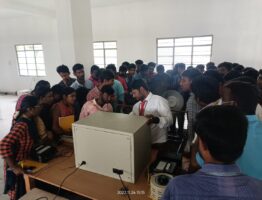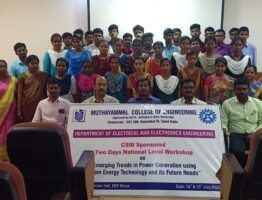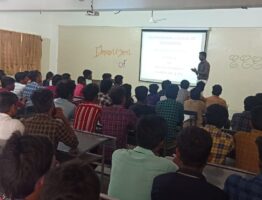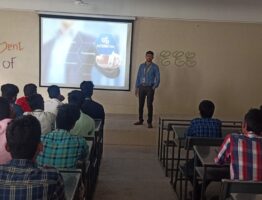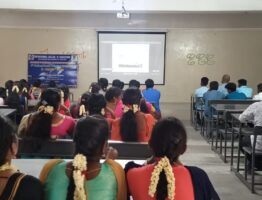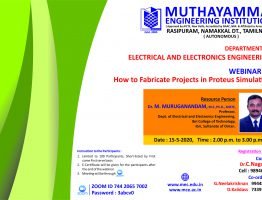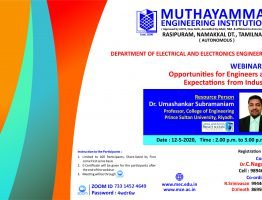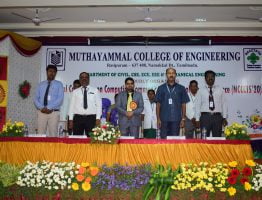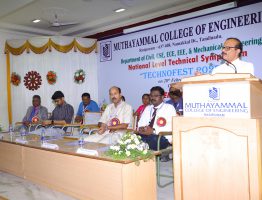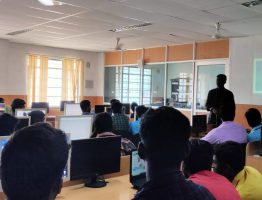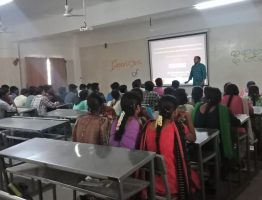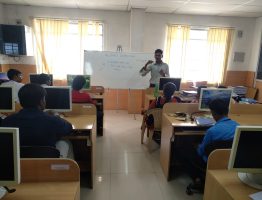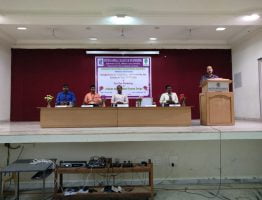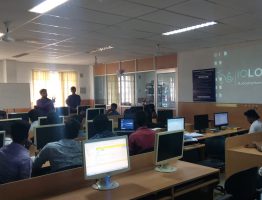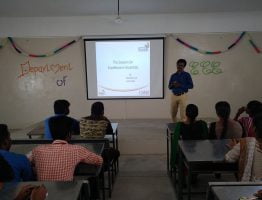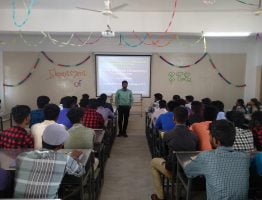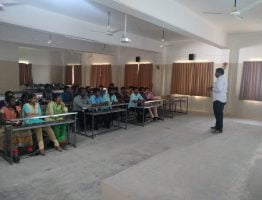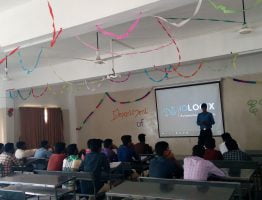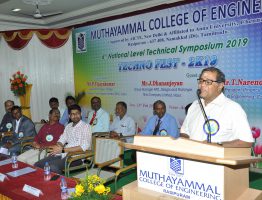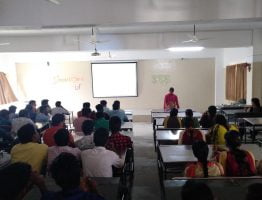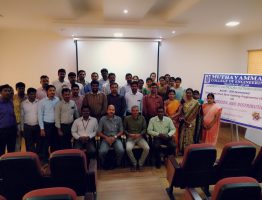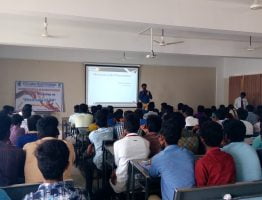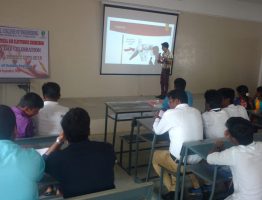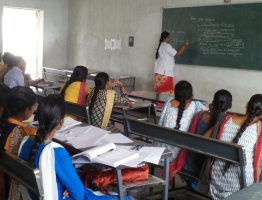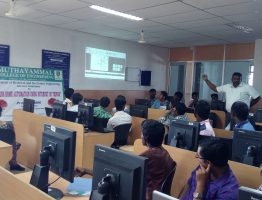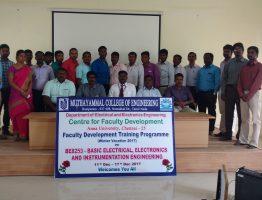 Overview
Overview
Electrical and Electronics Engineering is one of the oldest and pioneering branches of Engineering studies predates the many new branches from embedded systems to advanced Control System Engineering, Computer Science and Engineering, Instrumentation and Communication Engineering etc. The department plays a vital role in development of Engineering systems and evolution of the same. The world is moving towards a rapid advancement day by day and in all the technological achievements. The department induces the scientists to come up with various inventions and discoveries that include electrical current and magnetism, which rules all the other inventions.
Our Department offers UG Degree of study, both widely recognized for their quality and merit. Our block has been filled with well sophisticated equipments in all aspects. The ground floor is well-equipped with electrical machines laboratory. The first floor constitutes well established equipments needed for the laboratories.
We also possess simulation laboratory with more number of systems equipped with MATLAB, PSIM, ORCAD and Mi-power software. In the EEE Seminar hall is placed in Second Floor with fully equipped with 100 seating capacity. The second and third floor is established with well-equipped smart classes to make a comfortable atmosphere for the students to learn. The Electrical and Electronics block has two seminar halls to felicitate the department functions.
Our department have the tradition of teaching excellence of faculties and students works closely together in an open, collegial atmosphere. Dr.C.Nagarajan M.Tech., Ph.D. Professor & Head of the department, He has written 20 electrical related books, published 85 International Journal papers, 46 International and National Conferences papers were presented in reputed institutions.
 Vision
Vision
- To develop the department as a center of excellence to take care of the limited and regional needs related to Electrical Engineering activities.
- To make the students aware of the impact of Electrical and Electronics Engineering in the global industries scenario and the challenges of Electrical based industries and organizations.
 MISSION
MISSION
- To build up the students with sound technical knowledge and skill.
- To provide the students with advanced knowledge in the field of Electrical and Electronics Engineering as well as professional skills to face the challenges of the future.
- To project the students in real time industries exposure in all the possible aspects.
Programmes
- B.E – Electrical and Electronics Engineering
Program Educational Objectives
Program Outcomes
- The graduates will have the ability to

